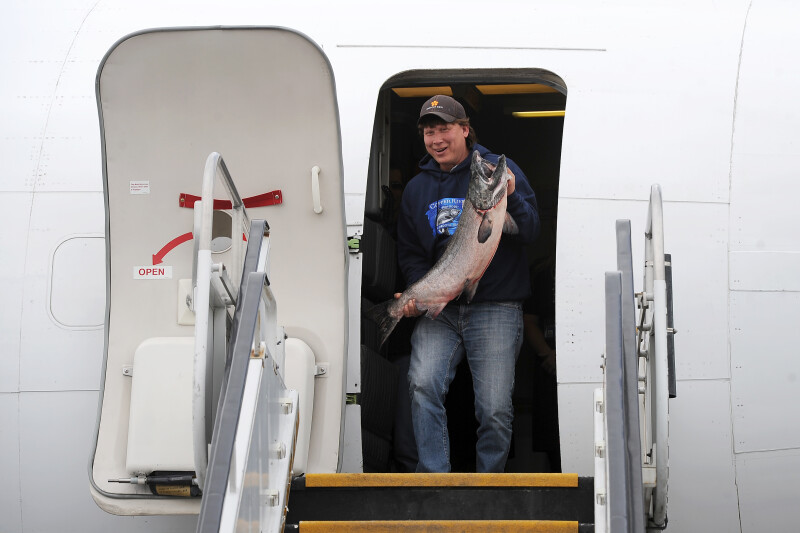As young Alaskans from across the state who care about our state’s future, we recognize the pivotal moment we stand at in our state’s history. Alaska’s fisheries have long been a cornerstone of our state’s economy, cultures, and communities. However, as we look to the future of our fisheries, we face a myriad of challenges — and opportunities — to ensure the continued sustainability and prosperity of this vital part of Alaska.
Alaska seafood today exists within a much larger picture — one increasingly defined by climate change. However, the can-do Alaska spirit and respect for our natural resources have been passed down in our state for generations, and that identity and set of values remains strong and gives us hope. From subsistence traditions to commercial fishing, we possess a unique position of understanding these challenges and conceiving of the best ways to address them.
Alaskans need to get out of denial about climate change, ocean acidification and the impact on our fisheries. We lead the world in sustainable fisheries management — and that’s not by accident. Alaskans understand the responsibility we have to steward fish stocks, not only for our own use but for the use of generations far into the future. We are at the point where we need to think outside of the conventional user groups (commercial, sport, recreation, subsistence) and think about the resource: the fish. It is no longer about what user groups get prioritized by the Department of Fish and Game; it’s about having fish, period.
It is vital that we continue our understanding of the changing oceans, investing in research that informs how we can best adapt to these constantly evolving conditions. Alaska’s management is defined by stakeholder engagement, holistic ecosystem management and world-class scientific data. Continuing the model of management focused on communities, ecosystems and science is essential to proactively managing our resources in the face of the changes taking place all around us.
Innovation is a cornerstone of effective adaptation, and those involved in Alaska’s fisheries — from family-owned fishing boats to processors to industry research and development — are nothing if not innovative. Alaska’s commercial seafood management system has been built to change and adapt, with innovation playing a key role in ensuring that adaptation and flexibility in anticipation of unforeseen challenges.
Seafood will continue to sustain Alaska. Looking forward: we have the chance today to determine how this will play out. Yes, there are challenges ahead, but in taking a big step back and looking at how Alaska earned its status as the world leader in responsible fisheries management, we can see the effective collaboration between all sectors with interests in the marine environment: scientists, policymakers, conservationists, industry, and the communities themselves. We can look to the future of Alaska’s seafood — with all its significance across our state — with hope, just as long as we continue the legacy of Alaska’s world-class management, recognize the value of staying engaged in this process that impacts us all, and understand that it is up to Alaskans — all of us — to ensure the future we hope for becomes reality.
Lena (Aloysius) Hoblet serves as the Tribal Administrator for the Native Village of False Pass. She holds a BA in politics and government and a MA in education. She is an experienced ANCSA Corporation Board Member and community advocate.
Willow Hetrick serves as the Executive Director of a local non-profit and is on multiple Boards focusing on natural resources and cultural preservation in Southcentral Alaska. She holds a BA in marine resource management, an MS in natural resources and environmental management, and an MPA in public administration with a focus on natural resource policy.







